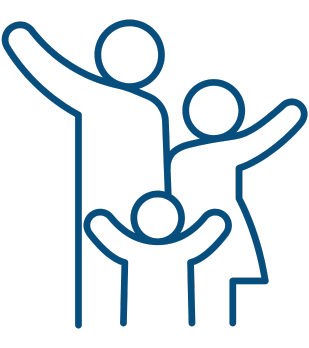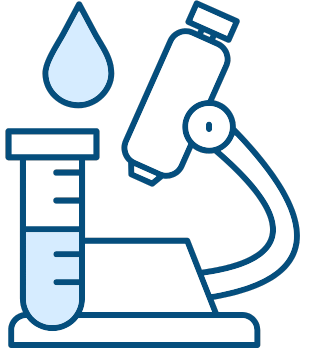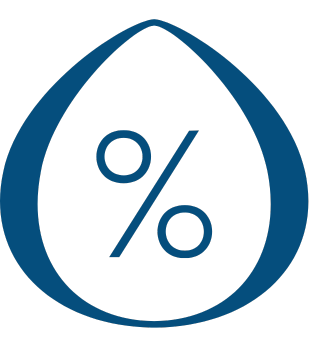Muscle pain is a common phenomenon that many people experience. It can be temporary or chronic, mild or severe, and can occur for a variety of reasons. Some of them are related to the level of physical activity, while others are related to health conditions. In either case, muscle pain can interfere with the enjoyment of life and normal activities.
How can we reduce or prevent muscle pain? When should I see a doctor? In this article, we will discuss in detail the causes of muscle pain, the possible types of muscle pain and ways to relieve it. We will also share some tips and recommendations on how to take care of your muscles and improve their health.
Why does muscle pain occur?
Muscle pain is a common occurrence that can be caused by a variety of reasons. One of the most common causes of muscle pain is muscle inflammation, which occurs when muscles are overworked or damaged. To understand this phenomenon, it is important to know how muscles work and how they react to different situations.
Muscles are important parts of our body that allow us to move and maintain our body position. When we do intense sports, work or other activities, muscles can be subjected to high stress or trauma, which can cause muscle damage and may lead to an inflammatory process.
Symptoms of muscle inflammation can vary. However, the most common symptoms of muscle inflammation are pain, swelling and sometimes redness in the affected area. This is the body’s way of protecting and treating the damaged muscles so that they can recover and function normally again.
To reduce muscle pain and inflammation, you need to give your muscles enough rest, use cold and warm compresses, anti-inflammatory ointments or gels, and do light exercises to improve the elasticity and strength of your muscles. If the pain is severe or lasts for a long time, a doctor should be consulted to determine the real source of the problem and to prescribe the right treatment.
What commonly causes different types of muscle pain
Muscle pain can be caused by a variety of reasons, most commonly related to the following factors:
- Physical strain: If people do intense physical activities they are not used to, they may experience muscle tightness and pain. This happens especially after sports training or hard physical work.
- Injuries. This is one of the most common causes of muscle pain.
- Overexertion: If people strain their muscles for a long time or too intensely, they may feel muscle fatigue and pain. This can happen when sitting at a computer or doing the same activities over and over again.
- Infections and inflammation: Some infectious or inflammatory diseases such as flu, viral infections or rheumatic diseases can cause muscle pain as a symptom.
- Dehydration: If people don’t drink enough fluids, their muscles can contract and spasm, causing pain.
- Unbalanced diet: If people are deficient in certain nutrients, especially electrolytes such as potassium and magnesium, their muscles can be prone to spasm and pain.
- Inadequate sleep: If people don’t get enough or adequate sleep, their muscles can become tight and sore.
The intensity and duration of muscle pain can vary depending on the cause. To tackle this problem more effectively, it is important to understand the underlying causes and to take preventive and therapeutic measures.
Muscle injuries
Muscle aches usually go away within a week or so and are untreated. However, if the muscle pain persists for more than a week, it is worth worrying, as persistent muscle pain can hide a serious problem. This may require seeking help from a physiotherapist.
If the muscle pain persists after a week, it is very likely that the pain is caused by a muscle injury. Muscle injuries are usually caused by a sprain or any physical or sports injury and are characterised by bruises, contusions and muscle tears. Muscle injuries can be of several degrees:
-A first-degree injury is a mild sprain, which is characterised by mild muscle pain and does not require additional treatment. It usually heals spontaneously, allowing the muscle to rest.
-A second degree sprain is already a moderate injury and requires physiotherapy to speed up healing. A second-degree injury is characterised by pain in the muscle, bruising, swelling and muscle weakness.
-A third degree injury is severe. Muscle tears are considered to be this level of injury and are manifested by severe muscle pain and bruising. In the presence of a muscle tear, the limbs become weak and difficult to control. If you experience similar symptoms, it is important to see a doctor as soon as possible, as a grade 3 injury may require surgery or a special treatment plan, and your doctor will carry out special tests to determine whether surgery is necessary or whether a period of rest for the muscle (immobilisation of the muscle, preventing movement of the injured area) will be sufficient. After the treatment, once the muscle has recovered, rehabilitation with a physiotherapist according to a plan designed by the physiotherapist is necessary to ensure that the muscle fully and safely heals and recovers from the injury.
Stress and muscle pain
Sometimes muscle pain is not caused by physical changes or injuries. Studies have shown that people who experience a lot of stress in their lives are often more likely to experience various types of muscle pain. This is because stress releases a stress hormone in our body, which increases muscle tension and sensitises the muscles. Muscle pain caused by stress can be felt in any muscle group and migrate from one place to another at any time.
Stress and pain are closely linked and it can sometimes be difficult to determine how the pain started or how it should be relieved. When muscle pain is caused by stress, it can create a vicious circle – the pain can lead to even more stress. Stress negatively affects our sleep and breathing, and poor sleep and breathing problems can lead to increased muscle pain.
Usually, physiotherapists can treat muscle pain caused by stress, but the best way to treat such pain is to remove the stressors. To feel better, it is important to find the cause of the stress and try to deal with it. Being able to cope with stress will help to reduce muscle pain, and reduced pain will help to reduce stress even further.
Stress-induced muscle pain can be relieved by intravenous therapy. This is a procedure where substances are injected into the body through a vein to help relax the muscles and reduce pain. These therapeutic infusions usually involve the use of medicines, vitamins and minerals to help the body recover from stress. This can be particularly effective for those who experience severe muscle strain and pain due to strenuous work or constant stress.
Muscle pain due to health problems
Muscle pain is a complex phenomenon that can be caused by a variety of health problems. It is important to understand that it does not always go away after physiotherapy or other treatments. Sometimes, in order to effectively manage muscle pain, it is necessary to take into account deeper health problems and diagnose them properly. This will allow you to develop an effective treatment plan and overcome your muscle pain. There are a number of underlying medical conditions that can cause muscle pain:
-Arthritis: Arthritis is an inflammatory disease of the joints that can affect not only the joints but also the surrounding muscles and tissues. This can lead to muscle pain and make it difficult to move the limbs.
-Rheumatic polymyalgia: Rheumatic polymyalgia is a chronic condition that is characterised by long-lasting pain in the muscles and tendons, which usually gets worse in the morning.
-Fibromyalgia: Fibromyalgia is a condition that causes severe muscle pain and sensitivity to pressure. It can interfere with normal life and cause permanent muscle discomfort.
-Endocrine disorders: Some endocrine disorders, such as hormone imbalances or diabetes, can cause muscle problems and pain.
It is important to consult your doctor if you experience prolonged or intense muscle pain. Only a qualified doctor can make an accurate diagnosis and create a treatment plan to help you get rid of the pain and improve your quality of life.
Various viral infections, such as flu, can also cause muscle pain. Although the main symptoms of flu are fever, cough, runny nose and sore throat, muscle pain can also be felt when you are ill. Muscle pain in the back, arms or legs is the most common, but you may also experience muscle pain throughout the body. However, such muscle pain is temporary and usually disappears after recovery. A well-chosen course of intravenous therapy can help the body to recover more quickly from infections and help the muscle pain disappear faster.
Muscle pain can also signal a deficiency of vitamins and minerals in the body. Muscle pain can be associated with deficiencies in vitamin D, magnesium and potassium. To overcome the problem, it is important to have blood tests to find out what is deficient when you have muscle pain.
Ways to avoid muscle pain
Muscle pain can cause discomfort and interfere with our daily lives. However, there are many ways you can avoid or reduce this unpleasant sensation. Here are some effective ways to prevent muscle pain:
Cold or hot compresses can help relax muscles and reduce muscle pain. A cold compress can be useful in the case of a mild injury or mild contusion. Meanwhile, heat compresses can help when you feel muscle tension. However, be careful to choose a temperature that is appropriate for your situation. Otherwise, you may only make the situation worse.
In some cases, especially if you have severe muscle pain or muscle spasms, it may be useful to consider intravenous therapy. In intravenous therapy, a cocktail of drugs and beneficial substances is injected directly into the bloodstream through a vein. This allows the drugs to reach the source of the pain more quickly and effectively, reducing inflammation and muscle spasms. Intravenous therapy helps to relax tight muscles, relieve pain and fight inflammation and nutrient deficiencies in the body that may have caused the muscle pain.
Massage. This is an effective way to reduce muscle pain. Massage helps to relax tense muscles and reduce discomfort. For best results, choose a professional massage, which can also cure certain types of muscle pain, especially those caused by muscle trigger points.
Stretching exercises: Regular exercise and muscle stretching exercises help to maintain muscle flexibility and reduce the likelihood of pain. Exercises designed to loosen specific muscle groups can be particularly helpful in relieving muscle pain. For example, if you often experience lower back muscle pain, exercises targeting these muscle groups can help to strengthen and stretch these areas, reducing their pain.
Physical activity: Any level of physical activity, including walking or swimming, helps to strengthen muscles and reduce pain. However, you should also take into account the limits of your body and avoid overexertion, as too much exercise can only lead to additional muscle pain or aggravate it. Beginners can start with light exercises and gradually increase their intensity. Sport strengthens muscles and improves their ability to withstand stress, thus reducing muscle pain.
Proper nutrition and hydration: Good nutrition and adequate water intake are important for muscle health. Ensure that your body is getting enough fluids and that your daily diet is filled with protein and vitamins. A healthy diet can also contribute to muscle recovery after exercise and reduce muscle soreness.
Adequate rest: It is always important to give your muscles enough time to recover, especially after intense activity or training. Rest is important for muscle repair and regeneration. If you are constantly experiencing muscle pain, you may not be giving your muscles enough rest.
Stress management: Stress can contribute to muscle tension and pain. Try relaxation practices such as yoga or meditation. These activities can help reduce tension and muscle pain. Learning how to manage stress is important for avoiding muscle aches caused by stress.
Medication: In some cases, particularly in complex cases, topical or oral painkillers may be used to treat muscle pain. However, as with any medication, painkillers should only be used after consulting your doctor.
If the muscle pain is chronic or cannot be treated at home, a doctor or physiotherapist should be consulted. Specialist tests can determine the cause of the pain and prescribe individual treatment. Specialist medical attention may be necessary if muscle pain persists or worsens.
Muscle pain is a common health problem that affects everyone at least once. Muscle pain can occur for a variety of reasons, but the most common causes of muscle pain are trauma and injury. There are many ways to relieve muscle pain, but the best treatment programme and the cause of muscle pain will be determined by a specialist. However, the best way to prevent muscle pain is to maintain good muscle health through daily exercise and stretching.
When muscle pain strikes, don’t hesitate to contact the expert team of doctors at Drops Clinic who are always ready to help you regain your quality of life. Our team is made up of professionals with exceptional skills and qualifications, using only the latest state-of-the-art medical equipment. We work only with certified products from world-renowned manufacturers. After listening to your complaints and preferences, and based on the detailed examinations carried out, our professional doctors will select the most suitable treatment for you.




